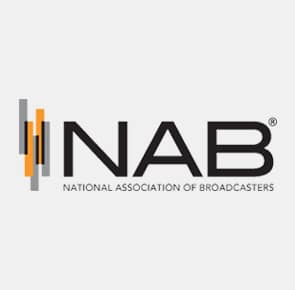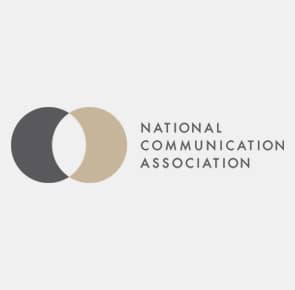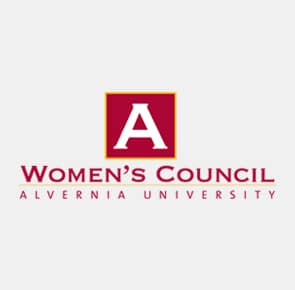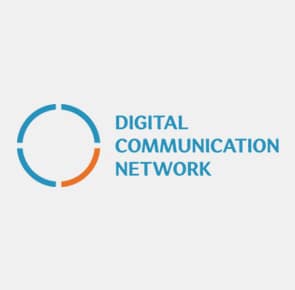University HQ is an industry-leading, independent educational organization that provides independent college rankings using a proprietary formula to create first class unbiased rankings. The team at University Headquarters strives to provide accurate and trustworthy rankings that highlights the best communications programs.
Get Matched With Communications Programs
What Does a Career in Communications Entail?
A position in communications entails a professional level of skill in developing effective messaging that can reach many different groups. This includes the general public and any other audiences that an organization seeks to reach and engage and might be termed interculrutal communication, public relations, professional communication, organizational communication, strategic communication, social media communications, media writing, etc. This field includes elements of marketing, writing, journalism, business administration, and public administration. A job in communications can take you into private, public, or non-profit organizations. There are lines of communication that face outward to the public and other organizations - often called mass communication - and, in the same way, there are lines of communication that primarily face inward and reach employees and other members of the organization.
At nearly every level, this field is hands-on. Professionals may begin as entry-level, with an undergraduate communication degree, or they may be middle- or high-ranked employees with master’s degrees. The career of a communication professional builds on experience. When selecting a program of study, students should include a plan for internships and studies that promote learning by doing, especially online students who may not have as many hands-on learning experiences in their online program in communication studies. If prospective students still aren't sure what types of communication can be learned and taught, here is a short list.
- organizational communication
- interpersonal communication/interpersonal and public communication
- health communication
- intercultural communication
- business communication
- organizational and professional communication
- public speaking
- mass communication
- digital communication
- strategic communication
- organizational and corporate communication
- technical communication
- graphic communication
- social media communication

Components of A Successful Career In Communications
Communication Skills
Professionals with a communications degree must have quick and incisive minds. They must develop the art of critical self-assessment to keep their work/product relevant to its purpose, especially those in public relations or mass communication. The below-listed items represent communication skills you'll need for success in this field, nearly all of which can be learned in an in-person communications program or online communication degree.
- Attentive listening is the foundation for understanding and successful interpersonal relationships and is vital when dealing with consumer or employee needs and organizational communication.
- With today’s technological innovations, writing and oral presentations include evolving forms like video, imaging, and global marketing, which can be used in intercultural communication.
- Critical thinking and creativity are essential to problem-solving and undertsanding how to apply communication theory.
- Understanding the Internet and engagement in technological innovation is a relatively new part of communication studies, but is nonetheless vital.
Modern Communications Tools
In today’s public and private sector business environments, communication is often a computer-based activity rather than a public speaking activity. The use of software is everywhere in today’s work environments, and prospective students must be prepared to master the more common types, such as word processing and presentations. Research assistance software is also high on the list of necessary knowledge and this includes legal research software, data analytics, human resources, mass media, and social media platforms like LinkedIn, Twitter, and Facebook. Students may want to consider that, what skills they have can affect their career options going forward.
Compare Popular Online Communications Programs
How to get a Career in Communications
-
Is Communications Right for You? The field is so broad that nearly everyone can find some interest in one or more fields using communication experts. Communications are essential to every type of business activity.
-
Education is the key to entering the field. A good entry degree is a bachelor’s degree in combination with internships or other hands-on experience.
-
Getting experience is the best way to explore the real-world work environment for communications jobs. These exposures offer opportunities for networking and referrals.
-
Your first communications job is an important step. The first job could follow from contacts and experience gained in real-world placements like internships or projects.
-
Professional organizations will help students learn about the industry and gain exposure to opportunities and networking.
What is the difference between a Communications Specialist and a Communications Manager?
In a typical organizational structure, a manager has a higher position than a specialist. The specialist would usually work with one or more other specialists and work at the direction of a team leader or manager. They would handle tasks such as drafting press releases, preparing information and summaries, and developing messaging concepts.

Typical Communications Degree Requirements
The typical educational requirement is an undergraduate communications degree, focused in a relevant subject area like public relations. There is a communications major, but it is a broad area that students can narrow into more specific areas within their online degree program such as marketing, social, or mass media communications, along with some schools that offer communications majors in digital communications.
Hands-on experience can be just as important as a communications degree with a specialization. Internships can open doors to jobs and careers. Projects, collaborations, and other real-world type experiences are excellent additions to a solid resume of education and coursework.
Typical Communication Certifications Needed or Recommended

Academic Standards for a Communications Degree :
- The Online Associate Degree in Communications requires about 60 credit hours of accredited coursework.
- The Bachelor’s Degree in Communications can be either a Bachelor of Arts or a Bachelor of Science degree. The B.A. Communications degree is a well-rounded approach featuring literature, general knowledge, and cultural studies. The B.S. degree emphasizes math, science, and information technology. The communications degree requires about 120 credit hours of which 60 hours are in required general education coursework. Communications or related majors require 30 credit hours and completion of a designated core of coursework.
- The online Master’s Degree in Communications requires a degree in communications or a related field. Students can complete the typical master’s curriculum in 12 to 24 months. If done online or part-time, then the course completion can vary from one year up to six years at some institutions.
Exam/Experience Needed for a Communications Specialist/Manager/Director
There is no entrance exam for communications specialists or communications management positions. The typical educational paths include advertising, marketing, digital communications, journalism, and public relations. An internship or any hands-on project is an excellent way to gain a foothold in the field.
Communications specialist positions can be entry-level to mid-level depending on the organization. Newcomers may get supervision and limited responsibility for tasks and assignments. Specialists work in teams, particularly in large organizations that report to a team leader, manager, or director level supervisor.
Find Online Communications Schools
Communications Manager positions are mid to senior level in most organizations. These important executives usually have responsibility for an organizational function such as digital communications, social media advertising, or external communications.
Communications Director positions are senior-level and, in large organizations, they typically control an organizational process such as advertising, marketing, or public relations. Director level positions have primary organizational responsibilities for internal and external communications, communication strategies, and may often be a spokesperson for the organization.
Students can qualify for communications jobs and careers by educational achievement at the associate, bachelor’s, and master’s degree levels.
Online Associate Degree in Communications
The associate degree is the first educational level for a communications career. These two-year degrees can help qualify you for an entry-level position. It typically requires 60 credit hours total, 18 hours in the communications major, with six hours of related electives. The other 36 hours consist of general education courses. The A.A. degree can reduce the time needed for a B.A. or B.S. degree.
Online Associate degree Coursework
- Interpersonal and Business communications review the business environment and effective presentations.
- Critical thinking prepares students to engage in problem-solving.
- Writing and oral communications help students function in real-world settings.
Online Bachelor’s Degree in Communications
The B.A. or B.S. in Communications prepares students to enter the workforce as writers, public relations specialists, and print or broadcast journalists. Some students choose concentrations to refine their career focus like politics, healthcare, or public administration.
Online Bachelor’s Degree Coursework
- Management communications involve groups, teams, internal, and external communications.
- Digital platform communication is an involved and growing area as marketing, engagement, and strategic planning can revolve around social media.
- Presentations occur in many firms and settings. Persuasive speech is a vital tool in communications.
Online B.A. or B.S. Concentrations
Bachelor’s concentrations include public relations, marketing, and digital communications.
Online Master’s Degree in Communications
The online Master’s degree prepares graduates for mid-level to upper-level positions. At the Master’s level you will home communications skills and add knowledge to enable organization-level thinking, problem-solving, and strategic planning.
Online Master’s Degree Coursework
- Global communications
- Advanced Research Methodology
- Social Media Management and Communications
Online Master’s Degree Concentrations
Online Master’s level concentrations include social media marketing, analytics, and marketing.
Costs of Online Communications Degrees
| Associate | public institution per year $3,570 - $ 7,200 for two years |
|---|---|
| Associate | private institution per year $14,587 - $29,200 for two years |
| Bachelor’s | $9,970 per year in public schools - $39,500 for four-year in-state rates |
| Bachelor’s | $25,620 per year in public schools - $102,000 for four-year out-of-state rates |
| Bachelor’s | $34,740 per year for private schools - $140,000 for four-year in-state rates |
| Master’s | $8,670 per year in public schools - $18,000 for two years |
| Master’s | $29,960 per year for private schools - $60,000 for two years |
Earning Potential for Communications Degree Fields and Occupations
The difference in salaries based on levels of education is revealing. At each level of educational attainment, the median compensation figure reflects a distinct advantage. The below-listed items describe salaries and educational levels, from a comparison of education level and average median compensation based on a 2017 survey of jobs and salaries.
| Secondary Education | $51,500 |
|---|---|
| Associate degree | $57,100 |
| Bachelor’s Degree | $79,800 |
| Master’s Degree | $87,700 |
| Research Doctorate | $94,100 |
Communications Fields of Study Median Salaries
| Field of study | Entry-level | Mid-Career Median |
|---|---|---|
| Telecommunications Management | $68,567 | $89,800 |
| Communications | $38,984 | $77,500 |
| Advertising and Marketing | $38,858 | $84,400 |
| Business Communication | $48,874 | $84,100 |
| Broadcast Communication | $35,000 | $68,600 |
| Interpersonal/Organizational Comm. | $50,500 | $74,400 |
| Public Relations | $35,620 | $75,500 |
| Marketing and Communication | $39,100 | $87,700 |
| Journalism | $36,110 | $78,100 |
| Corporate Communications | $45,338 | $72,200 |
| Visual Communications | $44,500 | $68,500 |
Communications Salaries by Occupation
-
Introduction
At the entry level, communications occupations typically require an undergraduate degree. Students can enter some technical fields without a B.A. or B.S. with some technical background. At the mid-career level, professionals with about ten years of experience reach higher income levels and often have mid-level to senior level positions. The late career stage brings greater rewards and responsibility, and many professionals occupy senior level positions at this point.Search Programs Communications Majors
Some mid-level to senior level positions require a master’s degree or an extensive background and set of experience. Experience is an important factor in communications occupations. It is a foundation for advancement and greater rewards and job satisfaction.
-
Communications Occupations
The Bureau of Labor Statistics (BLS) classifies media and communications occupations into these ten representative categories.- Announcers - broadcast and ceremonial roles that announce information and lead proceedings.
- Broadcast and sound technicians manage hardware and systems that support broadcast communications.
- Film editors manipulate images to produce effective messaging.
- Technical writers produce technical copy such as instructions and reports.
- Reporters and correspondents broadcast news and analysis.
- Interpreters and translators provide all forms of communications across language barriers.
- Public relations specialists connect organizations with internal and external audiences.
- Photographers manage a form of visual communications.
- Writers and authors develop content for print, video script, and digital media.
- Editors prepare many forms of content for publication and distribution.
Salary by Occupation
| Occupation | Entry Median Salary | Mid-Career Median Salary | Late Career Salary |
|---|---|---|---|
| P.R. Manager | $44,500 | $72,300 | $75,400 |
| News Anchor | $60,300 | $61,100 | $87,300 |
| Social Media Manager | $40,300 | $59,000 | $61,300 |
| Content writer | $38,200 | $53,400 | $61,800 |
| News producer | $31,100 | $55,000 | $69,500 |
| Communications Director | $47,500 | $76,100 | $99,300 |
| Social Media Specialist | $38,900 | $50,900 | $60,000 |
Important Questions to Ask (FAQ)
How long does it take to earn a Communications bachelor's degree online?
A communications degree can be a Bachelor of Arts or a Bachelor of Science. Students can typically complete either type of degree in four years of full-time study either online, on-campus, or in a combination of both. Many part-time students take more time to complete their degree than full-time attendees, and a term of six to eight years is well within the range of typical experiences. Another option to consider to complete your bachelors or masters education in a faster time frame is an online accelerated communications program. When selecting a school, students should assess their potential for finishing the degree within the period permitted. Working parents, business owners, and caregivers are among the many types of students that require more than four years to complete a degree in communications. The time spent is justified by the career advantages for improving an existing profession or entering a new line of work or business.
How much does a Communications bachelor’s degree online cost?
The average costs of an undergraduate degree depend on the school and location because the cost of living varies with the city, state, or region. The average for the 2017-18 school year was $35,000 for private four-year schools, $9,970 for in-state students at public schools, and $25,620 for out-of-state students at public schools.
Communications Bachelor's Degree Coursework
The titles of courses vary from school to school, but the core subjects include the below.
- Media, Culture, and Societies
- Introduction to Communications
- Writing
- Economics courses
- Communications Policy and Regulation
- Research Methods for Communication
- Media Processes and Effects
- Journalism and Law
- News and Reporting
- Digital Media
- Elective areas include International Business, Marketing, Business Management, Business Organizations, Politics, and Public Administration.
Does the school have the major(s) you’re considering?

How many students graduate “on time,” in four years?

What kind of accreditation does the online program hold? How is it regarded in the field?
Accreditation is an essential part of getting a degree. It affects the value of the degree because it promotes acceptance of educational achievement by a wide group of employers, businesses, governments, and educational institutions.
There are two types of accreditation; they are institutional accreditation and program accreditation. Institutional accreditation looks at the entire school, and program accreditation looks at one program within the school.
Institutional accreditation, in turn, has two branches- the national and regional accreditation.
- Regional accreditation is often considered the best. This type of accreditation covers most of the top colleges and universities in the US. Regional accreditation covers most research-based public and private colleges and universities.
- National accreditation covers non-traditional schools including online schools. It looks to a national framework for comparing schools rather than a specific region. National accreditation has two branches; they are the career or technical schools and the faith-based institutions. National accreditation is not as widely accepted as regional accreditation. Most employers and government programs accept national accreditation although some regionally accredited schools do not accept credits from nationally accredited schools.
- Program Accreditation covers a specific academic program such as a master’s degree in Business Communications. Program accreditation has the same positive impact on jobs, salary, and outlook as regional accreditation.
Software/Technology/Skills Needed
Some areas of communications are technical. These include photography, film and video editing, technical writing, and some digital communications. These fields can benefit from extensive coursework in those subjects with hands-on experience.
Communications Scholarships
High school seniors and college students can compete for scholarships for general scholastic achievement. Some scholarships focus on people with particular ethnic heritage, location, immigration status, or gender. The below itemized list of six scholarships focus on students in or about to enter one or more fields of communications study.
Six Noteworthy Scholarships in Communications
Students pursuing careers in communications have many scholarship opportunities. While the list below contains private funds, nearly every school or college that offers communications courses provides scholarships. Students should consult their list of possible schools to determine the availability of scholarships for communications majors.
-
New York Women in Communications Inc. Foundation Scholarship Program
The New York Women in Communications Foundation Scholarship Program helps empower women attempting to enter one or more fields of communications. The program accepts residents of New York that are undergraduates majoring in communications or high school seniors about to enter an undergraduate program. The program awards scholarships in amounts of $2,500, $5000, and $10,000 to 15-20 women each year. The program selects students based on academic and community performance, achievement, personal background, and demonstrated financial need. The annual deadline for filing applications is January 31 of each calendar year. -
The MillerCoors National Scholarship
This communications program has an annual filing deadline of May 27 each calendar year. The MillerCoors National Scholarship focuses on Hispanic students. Eligible students must be juniors or seniors attending college and enrolled in a communications, marketing, or business program. The Fund works with a group of partner schools. To qualify, students must be a US citizen, have a 3.0 or higher GPA, and maintain full-time enrollment. The number of awards varies from year to year. -
The National Academy of Television Arts & Sciences
This national organization offers scholarship opportunities for students of television and broadcast journalism. The National Academy of Television Arts and Sciences total benefits are more than $40,000 per year. Among the larger NATAS programs are the Jim McKay and Mike Wallace Memorial Scholarships. The Academy awards these $10,000 scholarships in honor of these legendary broadcasters. The Academy presents two $10,000 scholarships every year to high school graduates to pursue a communications-related bachelor’s degree. The awards support students that intend to begin a career in television. Other students can compete for and receive awards from the Academy that total about $20,000 per year. The Academy determines awards based on academic achievement. -
National Association of Black Journalists, NABJ Scholarships
This journalism association offers seven scholarships ranging from $1,500 to $2,500 per year. The funds support minority students seeking a career in journalism.The NABJ Scholarships include the below-listed awards.
- Allison E. Fisher Scholarship for $2,500
- Carole Simpson Scholarship for $2,500
- DeWayne Wickham Founder’s High School Scholarship for $2,500
- Larry Whiteside Scholarship for $2,500
- Les Payne Founder’s Scholarship or $2,500
- NABJ Scholarship in the amount of $2,500
- Visual Task Force Scholarship for $1,500
-
National Association of Hispanic Journalists
The Hispanic journalist’s association offers scholarship benefits of $1,000 – $2,000. The association awards the four below-described scholarships annually.- NAHJ General Scholarships Ruben Salazar Fund for college-bound high school seniors, college undergraduates, and graduate students pursuing careers in English or Spanish-language print, photo, broadcast, or online journalism.
- NAHJ Ford Motor Company Fund Scholarships awards amounts up to $2,000 for students to pursue careers in journalism. Students must have a 2.5 or higher GPA, and be college-bound high school seniors, college undergraduates, or graduate students.
- NAHJ PepsiCo Scholarships provides awards up to $2,000 to support students seeking careers in print, broadcast, online, and visual journalism. Eligible students must have a 2.5 or higher GPA. The scholarships go to college-bound high school seniors, undergraduates, and graduate students.
- NAHJ Sports Journalism Scholarship is a $2,000 annual scholarship to support students that seek to work in the field of sports journalism. The awards go to eligible college undergraduates and graduate students with a GPA of 2.5 or higher.
Professional Communications Organizations
- NAB
- SPJ
- NCA
- AWC
- DCN

NAB
NAB
The National Association of Broadcasters is an advocacy group that promotes radio and television communications. The association provides education, training, and fosters innovation that improves communications content and methodology. The NAB offers unique advantages for students and young professionals for networking, learning, and opening career paths.

SPJ
SPJ
The Society of Professional Journalists hosts a student branch of the organization that opens its resources for aspiring print, media, and digital journalists.

NCA
NCA
The National Communication Association is an organization that studies and promotes communications as a discipline. NCA works with teachers, students, and practitioners supporting research, networking, and information. The NCA promotes communication as a tool for improving the quality of life through free and ethical communications.

AWC
AWC
The Association of Women in Communications is an organization that promotes the role of women in the vital communications industry. AWC was founded in 1909 at the University of Washington. The advocacy organization seeks to promote innovation and women’s involvement in communications. AWC offers scholarships, education, and training in addition to networking opportunities.

DCN
DCN
The Digital Communications Network represents thousands of participants from various backgrounds and from more than 30 countries. The Network tackles the tough and intriguing problem of the impact of digital communications on modern societies. The DCN offers networking, thought leadership, and education on trends and shifts in the communications industry. This includes critical assessments of the usages of modern communications in the information age.
Choosing an Accredited College
Accreditation means a lot for life during and after college. Accredited schools offer high-quality education that employers and other educational institutions can accept as proof of your abilities. Accreditation affects financing. The Department of Education restricts federal student loan programs to accredited colleges, schools, and universities.
Find Online Communications Schools
Online vs. On-Campus vs. Hybrid Education
Students today have a wider range of choices than previous generations. They can complete college degrees at quality institutions entirely online. The freedom and flexibility of online education appeals to people that cannot easily separate from other obligations and attend school full-time or part-time on a physical campus. The flexibility of online education stems from its usually asynchronous format. Students can access online class work and resources from anywhere on the Internet. They also do not need to do so at a specific time.
On-campus learning involves students gathering in classrooms or lecture halls to participate. The advantages of on-campus learning include association with other students and a different type of interaction with faculty and school resources like libraries. Further, some types of financial aid depend on a physical presence such as work-study programs and graduate assistant positions.
Frequently Asked Questions
Why study communications?
Communication is important for those who wish to work with others and manage others. Through studying this, professionals can gain insight into their fellow professionals and better develop relationships and management skills. Nearly any business professional can benefit from an improvement of their communications skills. Better public speaking, team building, problem solving (in a group), conflict resolution, and more are all skills you can gain. Later, you can aid to gain more technical management skills and move into supervisory positions.
What are the different types of communication and what job might I hold within these fields?
- Health communications are most useful during public healthcare crises or in healthcare marketing, when clinics and hospitals aim to reach as many patients as possible.
- Integrated marketing communications can help you work at the highest levels in marketing and enable you to succeed in gaining larger a market share for whatever company you work for.
- Organizational communication is used to ensure that everyone within an organization understands organizational goals and metrics and that as many as possible buy in when changes are introduced.
- Political communication may refer to press releases, speeches, and more. The point is to get the message across, cause as little uproar as possible (or the opposite, depending on your goals), and maintain communication with the political base.
- Scientific communication (technical communication is a similar type) could include writing or editing scientific papers or manuscripts, or you could work in science journalism, making scientific breakthroughs understandable to the average person.
Does the College Have Post Graduate Job Placement Help & Assistance?
When considering a college for a communications degree, students should look ahead and consider the support for jobs and careers. Many schools offer extensive assistance to students and graduates to promote job opportunities and career advancement. These programs include providing a system for employers to review resumes and schedule interviews. Support programs can involve alumni and the entire university or school family of corporate and private supporters.
Why You Need to Consider How Rating/Accreditation Can Affect Your Salary
The rating and accreditation of the school affect the acceptance and respect given your degree from employers, recruiters, and other educational institutions. Regional accreditation of the institution and the program is the best combination. National accreditation works well, particularly for faith-based institutions and career type schools. Students that plan to get a graduate degree or other education beyond their current degree program should strongly consider regionally accredited institutions.
sources:
- US Department of Education, Accreditation in the United States
- CHEA, Accreditation and Recognition
- Wikipedia, Director of Communications
- US Department of Education, College Scorecard
- NCES, Digest of Education Statistics
- LinkedIn, Sept 28, 2017 “Here’s How Your Degree, And Your Skills, Can Impact Your Salary”
